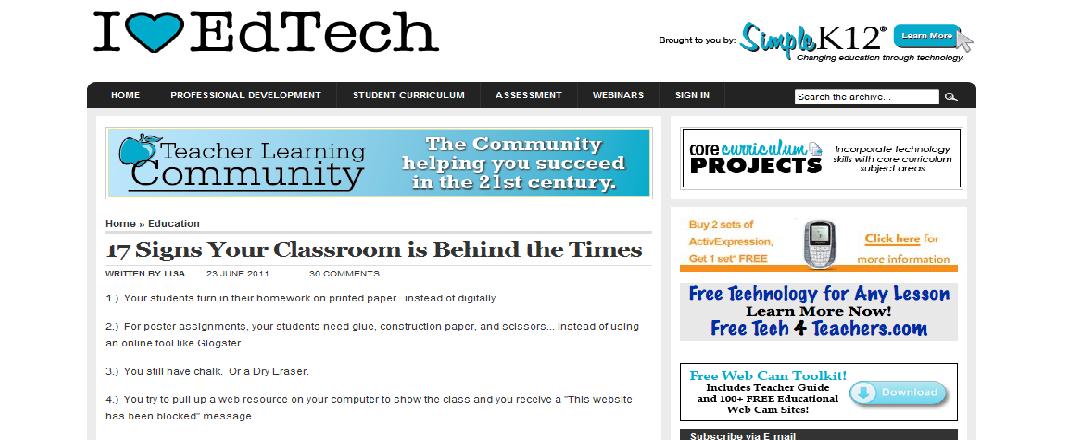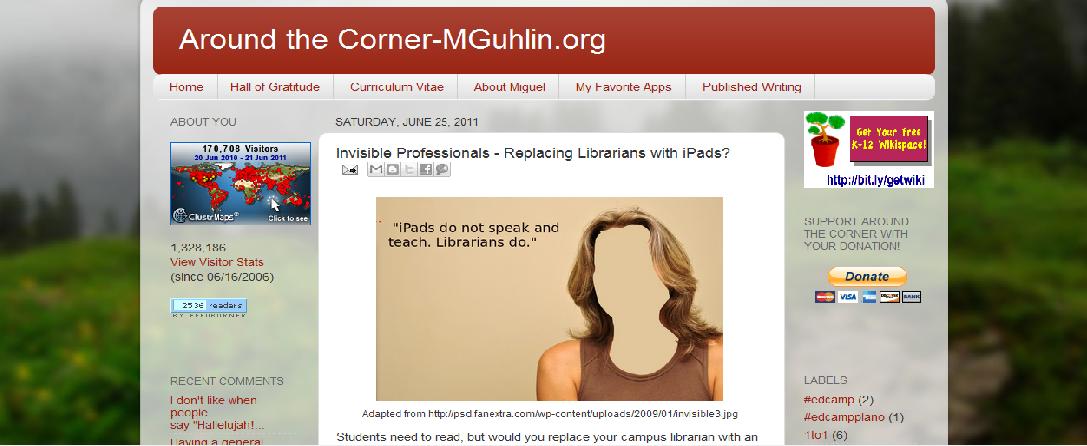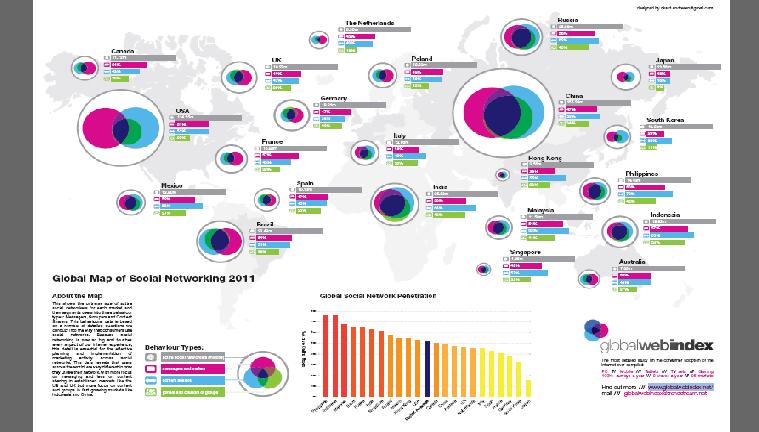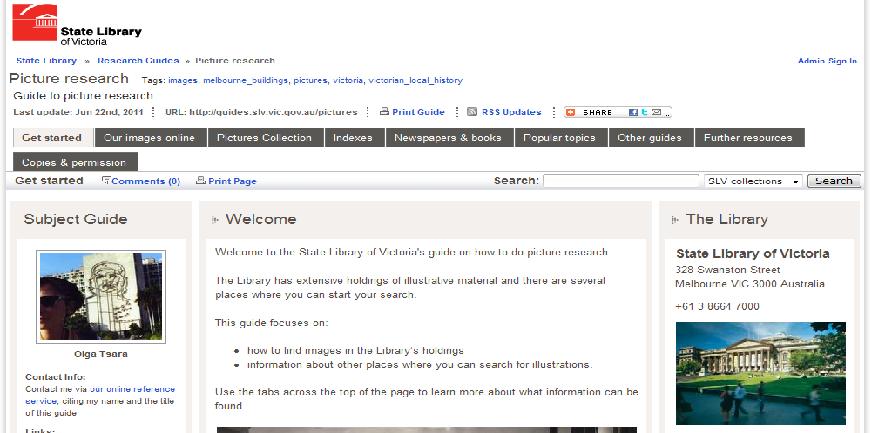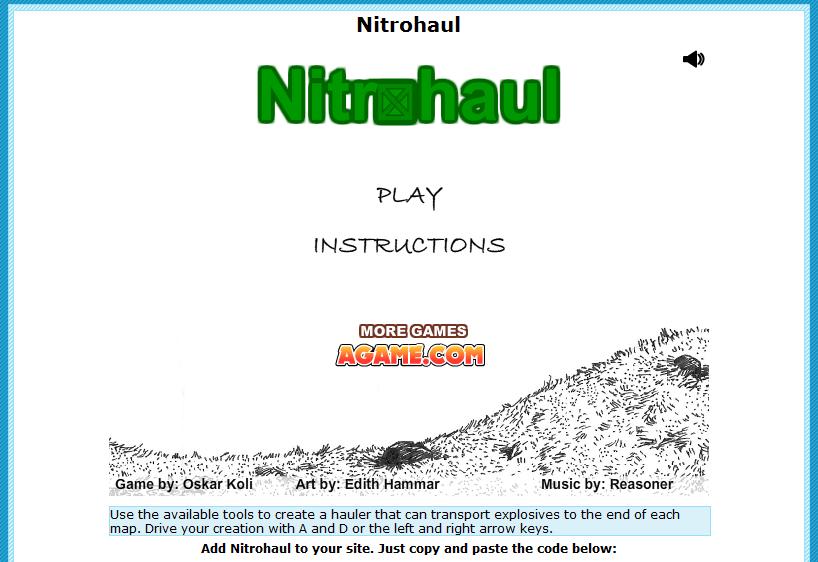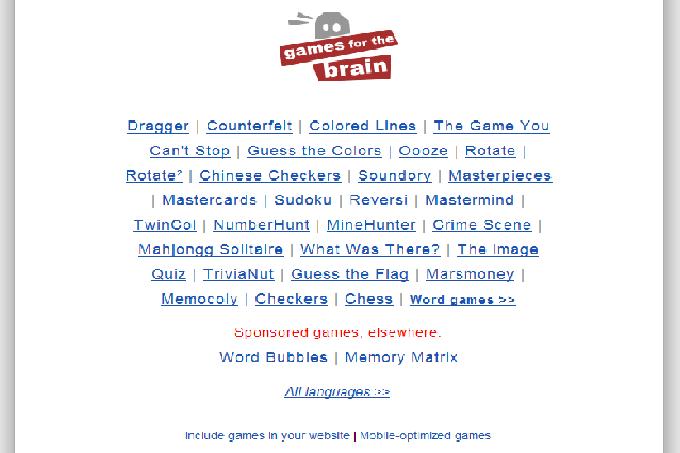Lisa, from SimpleK12, has written 17 signs your classroom is behind the times. Have a look and see where where your classroom is at. I like the comment by Heidi Siwak, that she would add ‘your classroom is quiet’.
Author Archives: Rachel
Super Action Comic Maker
If you haven’t heard of this yet, have a good look. Super Action Comic Maker is where students make their own comic story. It is especially great for art and english classes. Students can create a plot before going onto the comic maker, using words to describe what happens. Once they have logged into Super Action Comic Maker, they can add the images. The comic maker is part of a larger site called ArtisanCam, a fantastic site full of ideas to use in art class.
Worth reading – Invisible professionals – Replacing librarians with iPads?
 Around the Corner-MGuhlin.org posted an article definitely worth reading on 25th June 2011, titled Invisible professionals – Replacing librarians with iPads?.
Around the Corner-MGuhlin.org posted an article definitely worth reading on 25th June 2011, titled Invisible professionals – Replacing librarians with iPads?.
Recognising Innovation. $100K Follett Challenge.
The Recognising Innovation site shows the videos that have been entered into the $100K Follett Challenge. This challenge consists of the education community promoting the role that school libraries play in encouraging and developing information literacy and student engagement, in the form of a video. You can view the videos that have been entered and vote for your favourite. There are many inspirational ideas in these video, like the ones in ‘Extreme makeover: School library edition’, by CMS library:
Worth looking at – Global map of social networking 2011
 Globalwebindex have created a map that shows active networkers, grouped into three behaviour types: Messagers, Groupers, and Content Sharers. It is an interesting look at how different countries are using social networking tools.
Globalwebindex have created a map that shows active networkers, grouped into three behaviour types: Messagers, Groupers, and Content Sharers. It is an interesting look at how different countries are using social networking tools.
New research guides at SLV
State Library of Victoria provides research guides on their website that aid research on specific topics. Two new ones have recently been created. Victoria’s early history, 1803-1851 is a research guide that details Victoria’s early history, using published history and documents, including the library’s collection of Port Phillip papers, maps, and pictures. The other research guide is Picture research. Picture research focuses on how to find images in the Library’s holdings, and information about other places you can search for pictures. SLV has extensive holdings of illustrative materials. Whether educators use this in their own research on topics, or get their more senior classes examining the research guides, they are well worth investigating.
School libraries and teacher-librarians in 21st century Australia
The Report of the Australian Parliament, House of Representatives, Education and Employment Committee’s Inquiry into School Libraries and Teacher-librarians in 21st century Australia was tabled on 23 May 2011. SLAV welcomes the recommendations and is working in collaboration with the Australian School Library Association (ASLA) and the Australian Library and Information Association (ALIA) to formulate follow-up strategies at the state and national level.
The full text of School Libraries and Teacher-librarians in 21st century Australia can be found at http://www.apo.org.au/research/school-libraries-and-teacher-librarians-21st-century-australia
The SLAV Submission to the Parliamentary Inquiry can be found at http://www.aph.gov.au/house/committee/ee/schoollibraries/subs.htm (submission 114)
Be involved!
SLAV has established a Parliamentary Inquiry Reference Group that will provide input and support for its representatives in national discussions and also to identify and implement practical strategies that will ensure that what has come out of the national Parliamentary Inquiry will have a positive impact here in Victoria.
All SLAV members are invited to express interest in becoming a member of this Reference Group.
To express interest, please send an email as follows:
To: slav@netspace.net.au
Subject: Parliamentary Inquiry Reference Group
Message:
Please indicate your name, school and SLAV membership number
Briefly indicate how you would like to be involved – for example: attending meetings, collaborative online comments and discussion, skype hook-up, ….
SLAV needs input from as broad a range of members as possible!
Tell your good news stories!
To help build the evidence base regarding the positive impact of school libraries, members are encouraged to place their comments, stories and feedback on the following sites.
Facebook – What a difference a school library makes
http://www.facebook.com/pages/What-a-difference-a-school-library-makes/120543444695337
Wiki – What a difference a school library makes
Guest Post: BialikTV by David Feighan
David Feighan, director of Libraries and Learning Resources at Bialik College, Hawthorn, Victoria, has been kind enough to do a guest post about BialikTV. BialikTV is a place where the college celebrates learning, reading, and literature.
BialikTV was created in response to the fact that content is becoming more varied, more immediate, and more multimedia. Students are still working with text, but increasingly they are also working with images, sound recordings and audio-visual content. As a result there is a change in how people find information, with YouTube now recognised as the second largest search engine after Google. As a library that thinks about how information creation, distribution and use is changing; we need to understand and be on top of these major trends. What is the role of the library in a post text multimedia world? How do we collect and integrate text and multimedia? What metadata do we use to facilitate access to multimedia content? How do we include the growing amount of multimedia citizen journalist content into our collections? How do we ensure we are using authoritative content? What will a school library collection look like in 5 or 10 years’ time?
BialikTV is also where we celebrate learning, reading and literature at Bialik College. As such it is a platform where we can host and celebrate the student’s work, for example the book trailers students create. To protect the children’s identity, and to prevent inappropriate comments, no children’s faces are shown, and the ability to comment has been removed from BialikTV.
Further reading:
· http://www.reelseo.com/youtube-search-engine-domination
· http://www.smartinsights.com/search-marketing-alerts/youtube-as-search-engine
· http://socialtimes.com/youtube-and-the-future-of-citizen-journalism_b15810
Well done to David and the Library staff at Bialik College for creating BialikTV and for using it in such a wonderful way.
What are they playing in June?
Games for the Brain
Games for the Brain is a website of quiz, memory, and brain games. A great site to let students explore and play. An ‘All language’ tab is available to change the text to any language, so LOTE and ESL classes can use this site for teaching and learning also.

